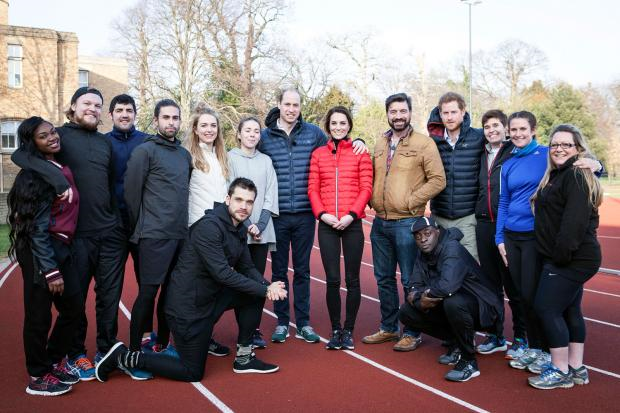Mind over marathon is an inspired two part film hosted by Nick Knowles. It brings together 10 individuals struggling with mental health into a running programme- the end goal is to participate in the 2017 London Marathon.
As we listen to the struggles and stories of these individuals it’s apparent how much courage and strength it has taken for them to carry on after the losses and traumas they have suffered. However, that is not something that we hear from them. What we do hear about, is how their coping mechanisms don’t seem to work; some that are self-destructive, and some that are avoidant.
It’s clear that each individual feels that managing their mental health is a private, secret struggle. Something that they need to hide from friends and families. We hear about how they have perfected a ‘persona’ that they portray to the outside world; hiding their true feelings has become second nature to them. This is the sad truth about the stigma which still shrouds mental health in a cloud of silence; not only are the individuals hiding their feelings, but they are hiding their struggles. This deprives them of the support and encouragement from family and friends.
It’s not only these ten individuals, we all do it; we all struggle under the misconception that managing emotions is easy, that everyone is managing their emotional health in a relaxed and happy way. This can’t be farther from the truth. Emotions by their very nature are not predictable, they are erratic, overwhelming and sometimes debilitating. We can’t box them off neat little easy to manage categories. And to acknowledge this can be tantamount to a weight being lifted off your shoulders.
When you listen to the ordeals that these volunteers have gone through, it becomes apparent that these struggles have taken a heavy toll on their emotional health, and quite naturally so. Not many people, if any can go through the trauma, loss and struggles that these individuals have gone through and come out unscathed on the other side.
It was upsetting to see that these individuals feel they are letting themselves down, they feel like they are failing themselves when they struggle to go about their daily lives. This coupled with the fact that they are not talking to anyone, can lead to a very lonely existence. There is no-one there to tell them how well they are doing; there is no-one there to encourage them, or to tell them how brave and courageous they have been to continue moving forward – this can lead to downward spiral that is easy to get lost in.
The running programme is an inspired way of getting people to connect with each other. It gives them a goal, something to work towards, something to motivate them when they are feeling down. Once committed it’s a beacon to aim for. It gives structure and routine to their lives; when you’re struggling with metal health structure and routine can get you through the bad days and motivate you to carry on, no matter how you’re feeling inside.
By committing to the marathon, the volunteers know they will need to eat better, look after themselves better to prevent injuries, they will also have the opportunity to talk to professionals about how they are feeling as they continue on their journey. On the film they are provided, with a trainer, nutritionist and a psychologist – this emphasises how important each aspect of our health is, and how we need to look after ourselves as a whole if we are to lead healthy lives.
Running can be meditative, and as we see near the end of part one, it becomes a part their lives. The professionals on the show all advocate running as a way to manage mental health; it’s something the individuals can do by themselves, and as we see it does make a difference. We see the individuals taking part in different events and we can see how much of an emotional release it is for them.
They rally and support each other, right from the start. We can see immediately how respectful and supportive they are of each other. You can see the relief when they first met of not being judged, of being able to talk to people who are going through similar experiences. It’s not about the end result, it’s about the journey; and to have someone walk alongside you on that journey can make a huge difference.
We are looking forward to part two where they meet the Royal family, who have been campaigning to remove the stigma still attached to mental health.


Leave a Reply